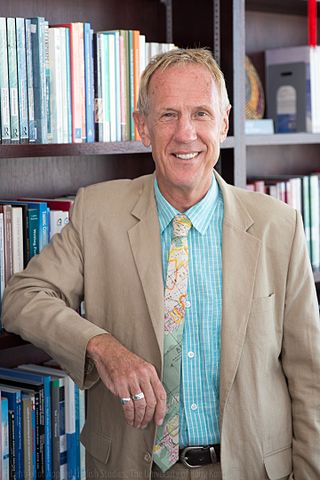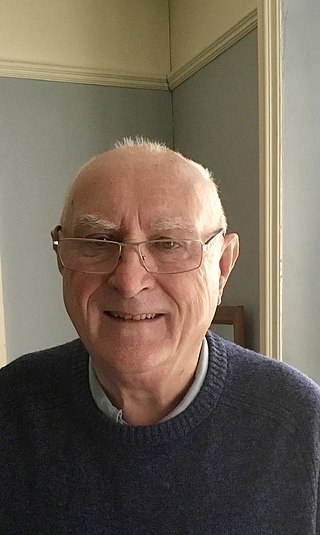Linguistic imperialism or language imperialism is occasionally defined as "the transfer of a dominant language to other people". This language "transfer" comes about because of imperialism. The transfer is considered to be a sign of power; traditionally military power but also, in the modern world, economic power. Aspects of the dominant culture are usually transferred along with the language. In spatial terms, indigenous languages are employed in the function of official (state) languages in Eurasia, while only non-indigenous imperial (European) languages in the "Rest of the World". In the modern world, linguistic imperialism may also be considered in the context of international development, affecting the standard by which organizations like the International Monetary Fund and the World Bank evaluate the trustworthiness and value of structural adjustment loans.
Stylistics, a branch of applied linguistics, is the study and interpretation of texts of all types and/or spoken language in regard to their linguistic and tonal style, where style is the particular variety of language used by different individuals and/or in different situations or settings. For example, the vernacular, or everyday language may be used among casual friends, whereas more formal language, with respect to grammar, pronunciation or accent, and lexicon or choice of words, is often used in a cover letter and résumé and while speaking during a job interview.
Applied linguistics is an interdisciplinary field which identifies, investigates, and offers solutions to language-related real-life problems. Some of the academic fields related to applied linguistics are education, psychology, communication research, information science, natural language processing, anthropology, and sociology.
Critical discourse analysis (CDA) is an interdisciplinary approach to the study of discourse that views language as a form of social practice. CDA combines critique of discourse and explanation of how it figures within and contributes to the existing social reality, as a basis for action to change that existing reality in particular respects. Scholars working in the tradition of CDA generally argue that (non-linguistic) social practice and linguistic practice constitute one another and focus on investigating how societal power relations are established and reinforced through language use. In this sense, it differs from discourse analysis in that it highlights issues of power asymmetries, manipulation, exploitation, and structural inequities in domains such as education, media, and politics.
Rod Ellis is a Kenneth W. Mildenberger Prize-winning British linguist. He is currently a research professor in the School of Education, at Curtin University in Perth, Australia. He is also a professor at Anaheim University, where he serves as the Vice president of academic affairs. Ellis is a visiting professor at Shanghai International Studies University as part of China’s Chang Jiang Scholars Program and an emeritus professor of the University of Auckland. He has also been elected as a fellow of the Royal Society of New Zealand.
Ahmar Mahboob is a Pakistani linguist. Currently he is an associate professor at the Department of Linguistics at the University of Sydney. He has worked in the fields of language policy development, pidgin and creole languages, NNEST studies, English language acquisition, English language teaching and teacher education, World Englishes, pragmatics, and minority languages in South Asia. Ahmar earned his PhD from Indiana University Bloomington in 2003, and has published extensively. He was the co-editor of TESOL Quarterly, alongside Brian Paltridge, for several years. He was also the Associate Editor of Linguistics and the Human Sciences and serves on the editorial boards of a number of journals. Ahmar has organised a number of regional, national, and international conferences and is the convenor and the co-creator of the Free Linguistics Conference.
Kathleen Bardovi-Harlig is an American linguist. She is currently Provost Professor and ESL Coordinator at Indiana University (Bloomington).
David Nunan is an Australian linguist who has focused on the teaching of English. He is the author of the ELT textbook series "Go For It!".
English as a lingua franca (ELF) is the use of the English language "as a global means of inter-community communication" and can be understood as "any use of English among speakers of different first languages for whom English is the communicative medium of choice and often the only option". ELF is "defined functionally by its use in intercultural communication rather than formally by its reference to native-speaker norms" whereas English as a second or foreign language aims at meeting native speaker norms and gives prominence to native-speaker cultural aspects. While lingua francas have been used for centuries, what makes ELF a novel phenomenon is the extent to which it is used in spoken, written and in computer-mediated communication. ELF research focuses on the pragmatics of variation which is manifest in the variable use of the resources of English for a wide range of globalized purposes, in important formal encounters such as business transactions, international diplomacy and conflict resolution, as well as in informal exchanges between international friends.
Scott Thornbury is an internationally recognized academic and teacher trainer in the field of English Language Teaching (ELT). Along with Luke Meddings, Thornbury is credited with developing the Dogme language teaching approach, which emphasizes meaningful interaction and emergent language over prepared materials and following an explicit syllabus. Thornbury has written over a dozen books on ELT methodology. Two of these, 'Natural Grammar' and 'Teaching Unplugged', have won the British Council's "ELTon" Award for Innovation, the top award in the industry.
NNEST or non-native English-speaking teachers is an acronym that refers to the growing body of English language teachers who speak English as a foreign or second language. The term was coined to highlight the dichotomy between native English-speaking teachers (NEST) and non-native English-speaking teachers (NNEST).
Guy W. D. Cook is an applied linguist. As of 2023, he is Emeritus Professor of Language in Education at King's College London in the UK. He was Chair of the British Association for Applied Linguistics from 2009–2012 and Chair Mentor from 2012–2013. He teaches and writes about English language teaching, literary stylistics, discourse analysis, advertising, and the language of food politics.
Norbert Schmitt is an American applied linguist and Emeritus Professor of Applied Linguistics at the University of Nottingham in the United Kingdom. He is known for his work on second-language vocabulary acquisition and second-language vocabulary teaching. He has published numerous books and papers on vocabulary acquisition.

Ken Hyland is a British linguist. He is currently a professor of applied linguistics in education at the University of East Anglia.

Gayane Hovhannisyan is an Armenian linguist, Doctor of Sciences in Philology/Linguistics (2000), Professor (2005). Hovhannisyan was the first Chair of English Teaching Methodology at Armenian State Pedagogical University after Khachatur Abovyan, Yerevan. Currently she is the (acting) head of English Communication and Translation Chair at Brusov State University.

Diane Larsen-Freeman is an American linguist. She is currently a Professor Emerita in Education and in Linguistics at the University of Michigan in Ann Arbor, Michigan. An applied linguist, known for her work in second language acquisition, English as a second or foreign language, language teaching methods, teacher education, and English grammar, she is renowned for her work on the complex/dynamic systems approach to second language development.

Keith Johnson is a British linguist. He is currently an emeritus professor at the Department of Linguistics and English Language of Lancaster University, United Kingdom. His research focuses on applied linguistics with a special focus on second language acquisition and language teaching.
Sarah Jane Mercer is a British linguist. She is currently the head of the Department of English Language Teaching at the University of Graz, Austria. Her research focuses on applied linguistics, with a special focus on psycholinguistics from a Complex Dynamic Systems Theory approach.
Alastair Pennycook is an applied linguist. He is Emeritus Professor of Language, Society and Education at the University of Technology Sydney, and a Research Professor at the Centre for Multilingualism in Society Across the Lifespan at the University of Oslo. He was elected a fellow of the Australian Academy of the Humanities in 2016.



